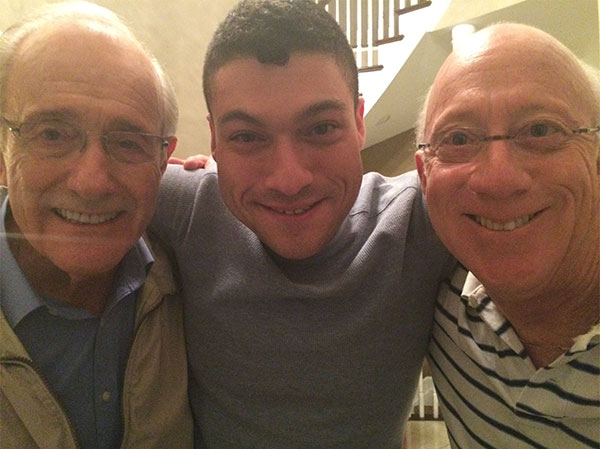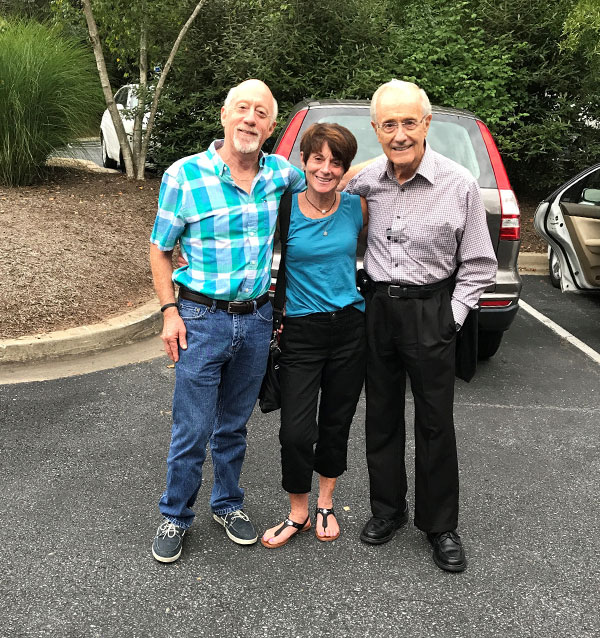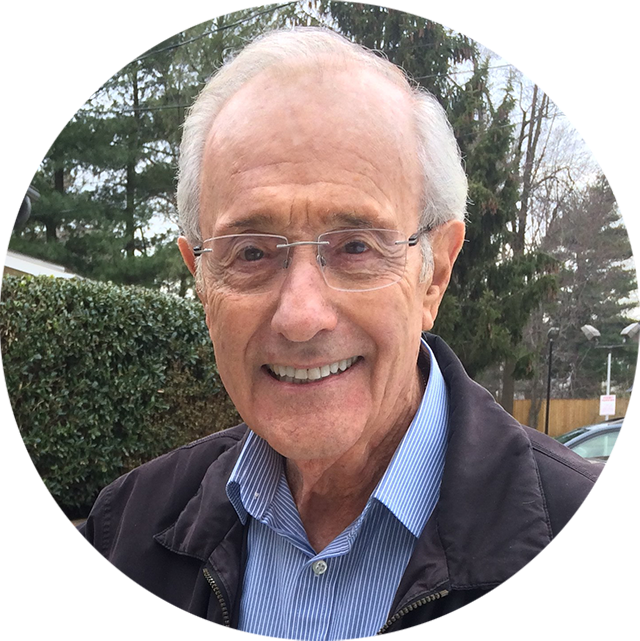The medication that I took to control my cholesterol gradually destroyed what hearing I had left, and I became deaf.
Medication Took Away My Hearing. A Cochlear Implant Brought It Back.
Back in the late ’80s and early ’90s, cochlear implants were just beginning to become more widely known. I remember seeing on television an elderly couple who were deaf and blind. She was given an implant and heard her husband's voice for the first time. This was my first impression of cochlear implants.

The beginning
I had otosclerosis from the age of 30. It was a calcification of the bones in my middle ear which kept them from moving freely and conducting sound into my inner ear. To correct the hearing loss caused by the otosclerosis, I had stapedectomy in my left ear. Unfortunately, due to an accident a few days after the surgery, I was left with no hearing in that ear. At the time, I was able to make do with a hearing aid in my right ear, which had only mild hearing loss at the time.
When I was 53, I underwent heart by-pass surgery. My cardiologist prescribed neomycin, an antibiotic, for my cholesterol. At the time, I didn’t realize that neomycin is very ototoxic, meaning that it can cause hearing loss.
I took it for eight years and began to notice more hearing difficulty, first on the phone, then in everyday conversation. The medication that I took to control my cholesterol gradually destroyed what hearing I had left, and I became deaf.
When I first began to notice my hearing loss getting worse, I went to the University of Maryland Hearing Clinic for an evaluation. The ENT suggested a cochlear implant and noted that his friend, a doctor in New York, was doing this type of surgery. I would need to go to New York for the procedure. However, my wife was diagnosed with Alzheimer's Disease around the same time. So I decided against it.
As the CEO of an electrical contracting firm, I still needed to be able to communicate. So I used a relay service for phone calls and got captioned telephones for my home and office. I took speechreading classes and wore a body hearing aid. I needed to face everyone and read their lips in order to carry on a conversation. The communication between my wife and me was extremely challenging, to say the least. But we found that persistence, determination, and love conquer all.
A second chance
By the time I was 73, cochlear surgeries were becoming more popular and successful, and more hospitals began doing them. So, early in 2002, I began to take the pre-qualification tests at Johns Hopkins for a cochlear implant, and became a candidate. On May 30, 2002, I was implanted in my right ear by the late Dr. John Niparko, the renowned pioneer in the field. I chose Advanced Bionics because I liked the variety of wearing options for the sound processor.
I thought since I was late deafened, it would be a piece of cake to adjust to my new implant. However, I quickly learned that hearing with an implant was more like reprogramming my brain to hear, and not simply having a new hearing aid. I heard sounds immediately after my implant was activated. But it took me a few months and many programming adjustments before I could start to make use of what I was hearing. Just like the audiologist said, though, the more I used it, the faster the improvements came.
My first big surprise after being activated was hearing the clock tick, and my dogs nails clicking along the floor. But now, having a cochlear implant has restored my life to 98% normal. Noisy situations and people who mumble are challenging, but I found that with a little patience and pre-planning, communication difficulties can generally be overcome. What I’ve found most helpful is to tell unfamiliar people that I have an implant.
I am now 91 years old. Looking back, getting a cochlear implant was a no-brainer. It is like I was able to take a leap back to the future.
A second chance
I am now 91 years old. Looking back, getting a cochlear implant was a no-brainer. It is like I was able to take a leap back to the future. I only wish I had gotten it sooner. I was deaf for six years before the implant. Sounds happened during those six years that I never heard.
Besides taking action when you know you need help, always, always make sure you know what to expect from medications and supplements. The old saying is that medication “can cure you or kill you.” In my case, there was certainly an element of truth in it. Always read the small print and question the doctor and pharmacist before you start to take a new medication. Even small doses can cause harm.

